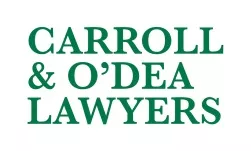Despite the many months most of us have spent in lockdown this year, the courts throughout Australia have been active. In this issue of the Notes, we consider two Victorian cases: one which considered whether a school could be vicariously liable for the abuse perpetrated by someone who was not an employee; the other involved an enrolment dispute with the parents alleging the school was in breach of the Australian Consumer Law.
Another case involving a breach of the Australian Consumer Law for using misleading marketing tactics to attract students arose in NSW.
Finally, the first significant challenge to the ATO's Tax Ruling on school building funds played out in Western Australia.
Enjoy the read and a well-earned rest during the holidays. Happy Christmas!
Regards,
David
Vicarious Liability for Abuse of Students by Staff and Others
Geelong College has recently been held accountable by the Victorian Supreme Court for the repeated predatory actions of a visitor on the College grounds towards a College student and the subsequent abuse which occurred off-campus.
While the College was not found to be vicariously liable for the actions of this person, its negligence was such that it was still found liable to the student with damages for the abuse exceeding $2.6 million, the highest award at present by a court in an institutional abuse case in Australia.
Read more to see how Geelong College failed in its duty of care.
The long arm of the Australian Consumer Law catches up with Educators
Two cases in 2021 brought against educational institutions highlight the effect of the Australian Consumer Law in the context of the provision of education, and some of the traps for education providers to watch out for. In one, parents claimed that a simple promise to "contact you regarding further consideration of, and the conditions applicable to, your re-enrolment applications" constituted misleading and deceptive conduct. In the other, it was found that a College had engaged in unconscionable conduct towards consumers by knowingly and deliberately removing safeguards to protect students from enrolling in a course which they were not suited to or had no intention of completing.
Read more to make sure that you aren't caught in the same way.
What is a 'school' for the purposes of a School Building Fund?
The Federal Court has recently given some guidance on the meaning of 'school' in the context of seeking endorsement as a Deductible Gift Recipient (DGR) for a school building fund.
Many schools (both traditional and non-traditional) operate school building funds to seek tax deductible gifts from members of the public. The money in these funds must be used to construct, maintain or acquire buildings to be used as a school or college.
In 2019, the Commissioner of Taxation applied the 2013 Tax Ruling on School Building Funds to determine that the Buddhist Society of Western Australia was not entitled to be endorsed as a DGR status holder for one of its school building funds. The Buddhist Society unsuccessfully objected to this decision. It then appealed against the Commissioner's decision to the Federal Court and sought a Judicial Review of the decision, alleging that the Commissioner had made an error of law.
Read more to see what happened when the Court disagreed with the Tax Ruling
The content of this article is intended to provide a general guide to the subject matter. Specialist advice should be sought about your specific circumstances.

